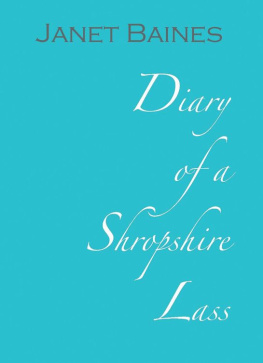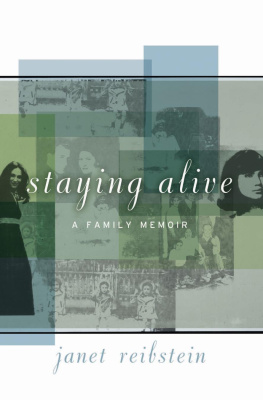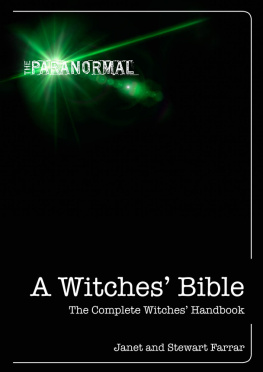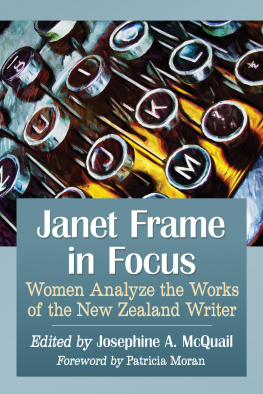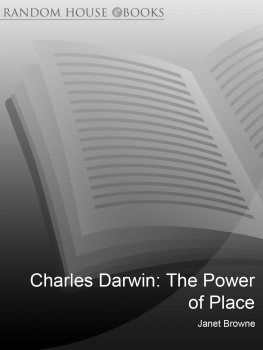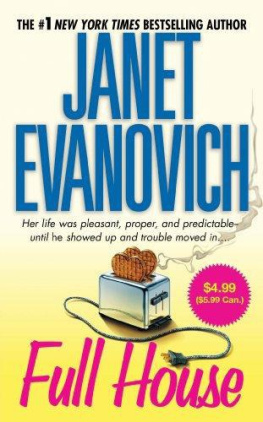This book has been written to celebrate the 90th Birthday of Janet Douglas Baines (ne Ward) and also to tell the story of one ladys life from just after the First World War until the present day; a time of great change and upheaval.
It may be difficult for the present generation of youngsters to imagine life without television, let alone iPods and MP3 players. How did people write and find out facts without computers? How did they get around without motor cars? I cannot promise that this book will answer all these questions as it is merely a glimpse of one persons life through the huge changes which took place during the Twentieth Century.
This book is also for Janets grandchildren, so that they might know some of their familys history.
I was born in March 1918 as the First World War came to an end. The world had changed a great deal in those four years since 1914. So many men had been killed during the terrible trench warfare. England was a different place.
There was a move towards female suffrage with the 1918 Representation of the People Act. Only women of property aged over 30 were given the right to vote not all women, therefore, could vote but it was a start. The majority of males aged over 21 had been able to vote since 1884, so women were really lagging behind. During the war Britain had experienced a potentially disastrous munitions shortage and this was only solved by women working in the munitions factories. Women also worked in surface jobs on coal mines, drove buses and worked on the land to provide vital food supplies. After the war women were made redundant and expected to regain their pre-war roles; mainly domestic work. Perhaps in fear of a return to the prewar violence perpetrated by the Suffragist movements, the 1918 act was passed with a huge majority. It was not until 1928 that women achieved full equality of suffrage.
I arrived into the world in the peaceful Shropshire countryside at Shushions Manor, near Wheaton Aston. Shushions had been given to my parents, Richard Pedley Ward and Gertrude (ne James) by Gertrudes bachelor uncle, Ben James. The Manor had been in the James family for several generations since 1835. Both my parents families had been farmers for as long as anyone could remember.
I was the third child after Benjamin and Ruth. My parents had hoped I would be a boy, which is why my middle name is Douglas! When I was two my father retired from farming and we moved to Weeping Cross House near Stafford where our younger sister, Deborah, was born. The house had been built in the middle of the 19th century by the Twigg family. The house stood for a mere 100 years as it was demolished after my fathers death in 1965 to make way for a housing estate. Weeping Cross House was a typical Victorian red-brick building with a glass-domed roof above the hall. We had a cook and a maid who wore uniforms and lived on the top floor of the house.
We did not have mains electricity in those days but we generated our own, which was stored in rows of batteries in an outhouse. There was neither a washing machine nor a fridge; perishables were kept in the cool cellar beneath the kitchen and the laundry took a great deal of time and effort. Today it is strange to think of an era when a constant supply of electricity was not available to everyone. In 1915 the Electric Power Supply Committee was established which made a recommendation to divide the country into district boards. These boards would take over power generation and distribution in their area. With the Electricity Supply Act of 1925 came the Central Electricity Board which established the National Grid System, linking the biggest power stations across the country and supplying power to existing undertakings. Most of the power was being used by industry but, by 1936, over 12,000 domestic premises had been connected with the help of an assisted wiring scheme.
Weeping Cross House was a good place to grow up, with farmland all around, a grass tennis court and a large kitchen garden where I learnt a great deal from the gardeners; my earliest memories are of washing the clay pots. I think we all inherited a love of gardens from our mother. There were grapes and other fruit in the greenhouses and numerous nut trees in the grounds. Attached to the side of the house a tall conservatory housed Camellias. I still love the waxy beauty of these flowers. In the entrance hall stood a stuffed kangaroo holding a dinner gong (later he was to reside in the walled garden). Our Uncle Ben had brought the creature back from Australia. There were 100 acres at Weeping Cross, most of which was let out to a neighbouring farmer. However, although my father had retired from farming, he still kept a few cattle which he bought in the spring and sold in the autumn after they were fattened. Ruth remembered walking the cattle to market whilst wearing her brothers rather too large boots. We also had a few milking cows for the house; and hens, which ran free in the nut walk surrounding the walled garden; and pigs. My father also ran the shoot at Ingestre Hall; mainly for the South African branch of the family. We used to go along sometimes and enjoyed helping the keepers with the young pheasants. Mother would put on delicious shoot lunches in the outbuildings of Ingestre Hall.
Weeping Cross was part of the Parish of Berkswich which also included Radford, Walton and Milford. Berkswich and Walton are mentioned in the Doomsday Book. Weeping Cross is thought to have been a place of execution hence the rather tragic name. The Staffordshire and Worcestershire Canal, which was opened in 1772, ran through our land; it was clean enough for us to swim in! The first railway to run through the parish was opened in 1805 with the main line being opened in 1847. Staffordshire was an important salt and coal producing area. During the 19th century boot and shoe making became a huge industry with some 5 million shoes being shipped out to South Africa alone. The 20th century saw a decline in shoe-making in favour of electronics; GEC being a major employer in the town to this very day.
When Debbie and I were very small (about two and four and dressed in our blue and white striped rompers) we were in the nursery where a fire was burning in the grate. There was a large fire guard around it but Debbie and I were still able to throw our books and toys onto the fire. A lovely blaze ensued but luckily someone smelt fire and came up to put it out we could easily have burnt the house down! Debbie was very like our mother with her beautiful auburn curls, kindness and generosity. The biggest thrashing I remember was when our father caught Debbie and I dancing on the top of his beloved billiard table!
We three girls all went to Green Hall Preparatory School in Stafford. We had to walk the two miles into Stafford. It was quite good fun because we would pick up our friends on the way. A small grey bus eventually started running; the journey cost 1d each way. The Misses McCrea, Williams, Moncur and Edger taught us but the best part was playing Hide and Seek in the large gardens. There was a little shop in Rickerscote, on the way back from school, where we would spend our 3d pocket money (a silver threepenny piece = 1 decimal pence would be worth about 50p today)

